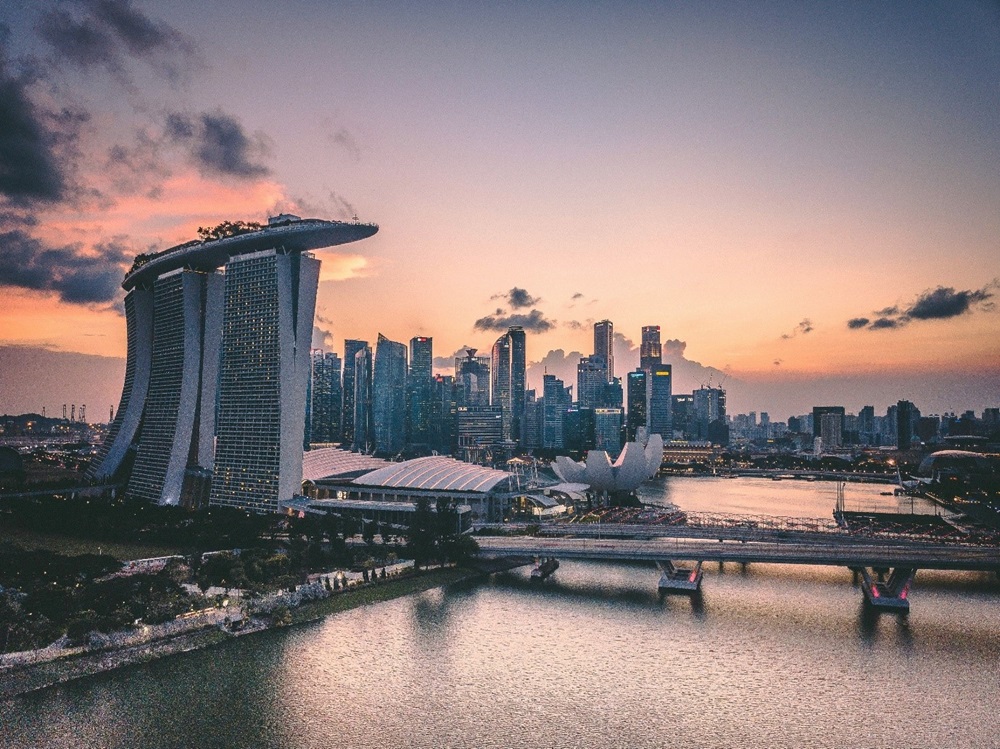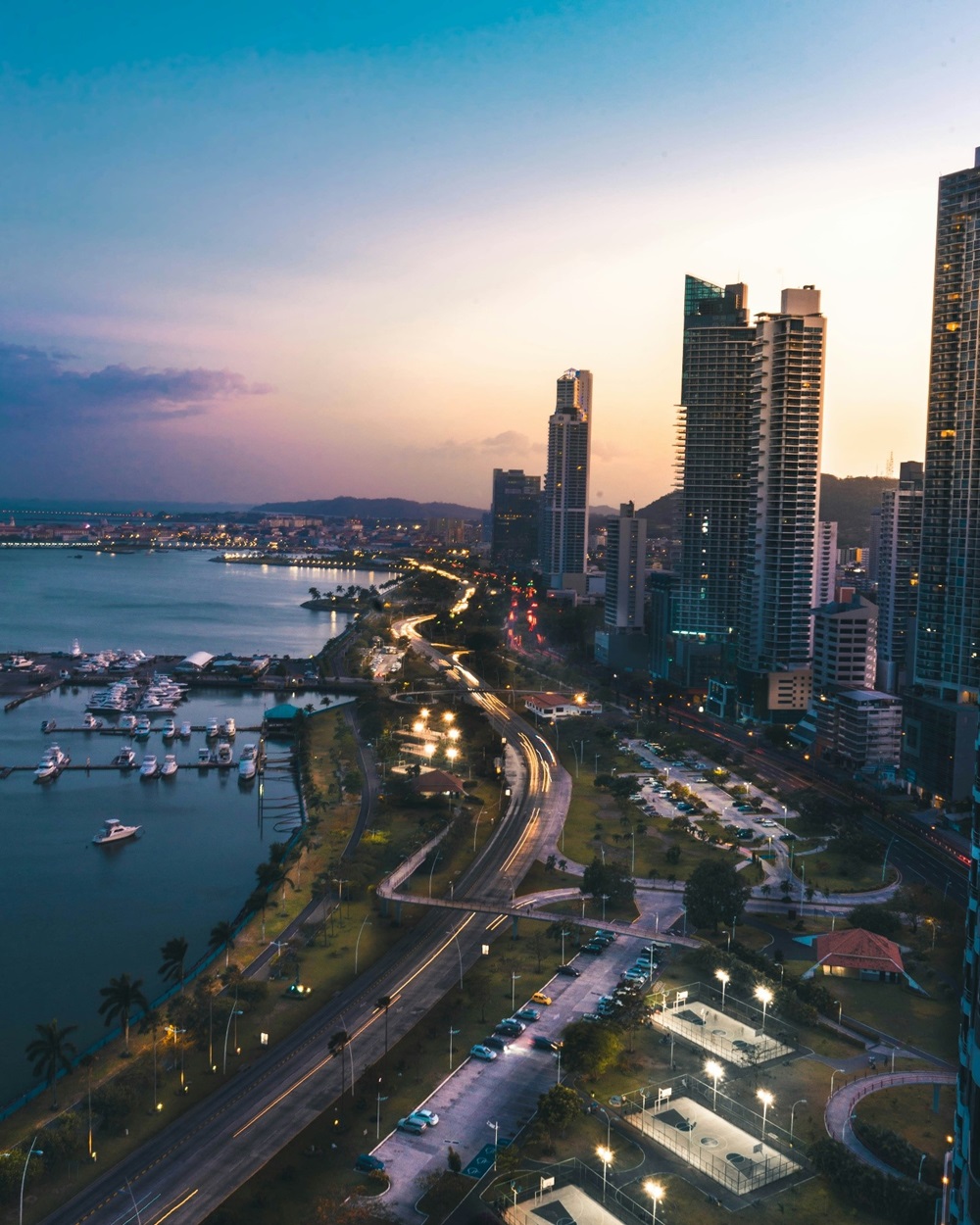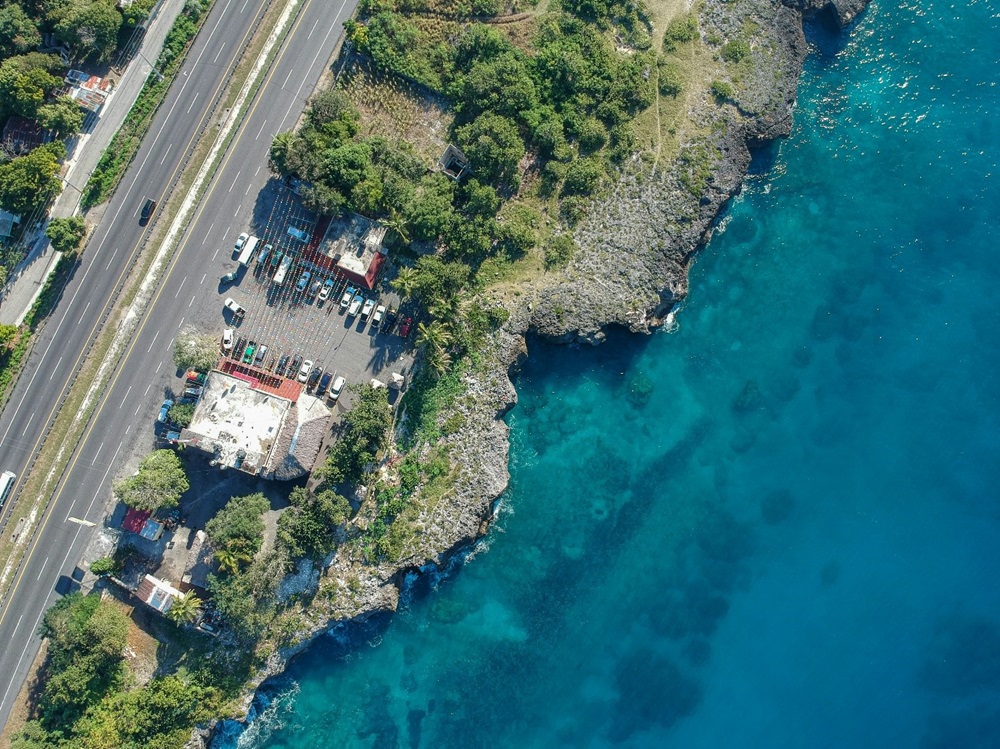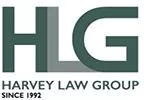- within Tax topic(s)
- in United States
- in United States
- with readers working within the Advertising & Public Relations and Business & Consumer Services industries
The global economic downturn coupled with the continuous growth of public expenditures has prompted nations to recalibrate their tax frameworks to tackle budget shortfalls. The most straightforward and common approach to bolster government revenue involves directly transferring the burden onto taxpayers, notably High-Net-Worth Individuals (HNWIs).
The tax load on HNWIs is exacerbated by mechanisms such as the Common Reporting Standard (CRS), the Foreign Account Tax Compliance Act (FATCA), and Ultimate Beneficial Owner (UBO) regulations. These frameworks mandate comprehensive disclosure of financial data, making it challenging for individuals to shield assets and income overseas. Through the compulsory reporting of financial accounts and ultimate beneficial ownership details, these measures bring formerly offshore income and assets into the tax net, essentially amplifying the tax responsibilities of affluent individuals.
While HNWIs have at their disposal various strategic avenues to mitigate their tax responsibilities—including exploring tax-efficient investments, engaging in philanthropic endeavours through charitable contributions, establishing trusts, and employing sophisticated asset management strategies—relocating to jurisdictions renowned for their tax-friendly environments frequently yield substantial tax advantages that are unparalleled. Indeed, with the right immigration strategy, changing tax residence often proves to be the most efficient and effective method to handling tax burdens in the long run.
Certain countries particularly stand out for their favourable tax policies and provide exemptions on offshore income and capital gains, along with significantly low personal and corporate income tax rates. These characteristics make them exceptionally attractive for individuals seeking to optimize their tax positions and reduce their overall tax burdens.
To assist HNWIs in effectively managing their tax burdens, we will delve into recent global tax policy changes and highlight various popular immigration options that facilitate swift relocation to low-tax jurisdictions in this article.
Changes in Global Taxation Landscape
Recent shifts in the global taxation landscape are placing a heavier tax burden on HNWIs. Notably, upcoming changes in the tax system of the United Kingdom (UK), set to take effect on 6 April 2025, will transition to a residence-based framework. This shift means existing and new UK non-domiciled taxpayers will soon be subject to taxation on their foreign income and gains, impacting those considering moving to the UK under business mobility schemes and those currently in the UK with non-domicile tax status.
Furthermore, the United States (U.S.) continues to apply intricate taxation policies, characterized by frequent changes to the Internal Revenue Code and the taxation of worldwide income for U.S. citizens, permanent residents and foreign nationals residing in the country.
Simultaneously, the European Union is actively working to harmonize tax regulations across its member states to combat tax evasion within the region. This collaborative effort aims to streamline tax policies and prevent discrepancies that could facilitate tax avoidance strategies by individuals or corporations operating within the EU.
Fast Immigration Options in Tax Friendly Jurisdictions
For HNWIs seeking expeditious avenues to alleviate their tax burdens, relocating to tax-friendly jurisdictions like Hong Kong, Singapore, Thailand, Panama, and Dominica could offer attractive opportunities. Each of these jurisdictions offers unique pathways for HNWIs to establish residency or citizenship, thereby unlocking favourable tax benefits and facilitating efficient wealth management strategies.
Hong Kong

In Hong Kong, individuals can benefit from a favourable tax environment that includes low personal income tax rates ranging from 2% to 17% and a flat corporate income tax rate of 16.5%. Another key advantage of Hong Kong's tax system is that there is typically an absence of taxes on foreign-sourced income, capital gains, dividend income, as well as estate, gift, or inheritance taxes. This tax-friendly regime makes Hong Kong an attractive destination for HNWIs and businesses looking to optimize their tax positions and maximize wealth accumulation.
Additionally, Hong Kong provides efficient immigration solutions for foreign talents and investors through programs like the Top Talent Visa Scheme and the Hong Kong Investor Program (also known as the Capital Investment Entrant Scheme). The Top Talent Visa Scheme allows foreign talents to obtain employment visas quickly without prior job offers, typically within 2 to 4 months. This initiative underscores Hong Kong's commitment to attracting top-tier talent globally and fostering a competitive business environment.
Furthermore, the Hong Kong Investor Program offers investment visas to individuals who make a substantial investment of HKD 30 million in the territory. This investment grants them the freedom to live, work, or study in Hong Kong, providing access to the city's vibrant culture, business opportunities, and lifestyle. The application process for the Hong Kong Investor Visa is streamlined, taking only 4 to 6 months to complete, enabling HNWIs to efficiently optimize their tax positions and immerse themselves in one of the world's leading financial hubs.
Beyond its strategic tax policies and streamlined immigration avenues, Hong Kong's strategic location as an Asian gateway enhances its appeal as a hub for global business, particularly with key markets like China. The city's diverse environment supports seamless integration and growth for immigrants, solidifying its status as a premier destination for those seeking financial prosperity and a fulfilling and enriching lifestyle.
Singapore

Singapore, which is celebrated for its enticing tax framework, is also attracting investors and HNWIs globally. Noteworthy features of their competitive tax system include low personal income tax rates ranging from 0% to 20%, a corporate income tax set at 17%, various tax relief provisions, and an extensive network of Avoidance of Double Tax Agreements. Much like Hong Kong, Singapore distinguishes itself as one of the select jurisdictions globally that refrains from imposing taxes on foreign-sourced income, capital gains, estate, gift, or inheritance.
In addition to its tax benefits, Singapore's investor-friendly initiatives and robust infrastructure contribute to its appeal. The city-state's Startup Visa program offers a streamlined pathway to residency in just 8 weeks for entrepreneurial minds establishing a Singapore private limited company with a minimum investment of USD 230,000.
Moreover, Singapore's stable political environment, advanced financial services sector, and vibrant multicultural society create an ecosystem conducive to business growth and innovation on a global scale. The city-state's commitment to education, research, and technology further enhances its attractiveness as a destination for cutting-edge industries and talent. These factors combined establish Singapore as a prime destination for wealth creation, innovation, and international connectivity, attracting a diverse pool of talent and capital from around the world.
Panama

Panama, renowned for its advantageous tax regulations and investor-centric initiatives, emerges as another prime immigration destination for individuals aiming to optimize their financial strategies. With a tax exemption on foreign-sourced income and robust banking secrecy laws safeguarding account holder privacy, Panama is highly favoured by those valuing confidentiality and security in financial matters.
Those looking for swift pathway to permanent residency in Panama would undoubtedly appreciate its Panama Qualified Investment Visa Program, as qualifying investors may gain permanent residency in just 30 days through this option. This program also offers a range of investment options to meet diverse preferences:
- Real Estate Investment: An investment of at least USD 300,000 in Panamanian real estate.
- Securities Investment: An investment of at least USD 500,000 in Panamanian securities.
- Bank Deposit: A deposit of at least USD 750,000 in a Panamanian bank account.
This flexibility allows investors to tailor their investments to align with their financial goals and interests.
The streamlined immigration process, in conjunction with Panama's tax-friendly environment and unwavering commitment to privacy protection, positions the country as an attractive choice for investors looking to establish a secure presence in a vibrant economic hub.
Thailand

Thailand is another appealing destination for HNWIs seeking to swiftly relocate to a low-tax jurisdiction with its favourable tax regime and attractive residency programs. With a corporate income tax rate as low as 20% and various exemptions on capital gains and gifts, Thailand provides a stellar environment for wealth optimization, particularly beneficial for entrepreneurial endeavours.
Moreover, Thailand offers a diverse array of residency pathways, including the Long-Term Resident Visa Program, granting applicants a decade-long stay in the country within about 4 months.
Beyond facilitating long-term residency, this program also opens doors to immerse in Thailand's vibrant culture, scenic landscapes, and high-quality lifestyle, making it an attractive choice for those seeking a harmonious fusion of financial benefits and exceptional living standards in a tropical paradise.
Dominica

Dominica, another favoured immigration choice for HNWIs, offers a compelling destination for foreign investors seeking a second residence. Renowned for its tropical climate and stunning landscapes, Dominica attracts HNWIs due to its competitive tax regime designed to appeal to both individuals and businesses.
With double taxation agreements with the Member States of the Caribbean Community (CARICOM), relocating to Dominica can help serve to alleviate tax burdens and prevent double taxation for individuals and businesses operating within these jurisdictions. The absence of capital gains, estate, and inheritance taxes further contributes to Dominica's reputation as a tax-friendly location, making it a strategic hub for tax planning endeavours.
Foreign investors can leverage Dominica's Citizenship-By-Investment program to secure a second passport and optimize their wealth management tactics. Applicants can attain Dominica citizenship by committing at least USD 200,000 through a government donation or real estate investment, with the process typically concluding within 6 to 8 months. Notably, this program offers flexibility, allowing HNWIs to shape their relocation plans without residing in Dominica prior to obtaining citizenship.
In addition to its peaceful lifestyle, tax benefits, and efficient immigration procedures, individuals relocating to Dominica can appreciate its affordable cost of living and well-established infrastructure. The government's supportive business environment opens up numerous opportunities for foreign investors, facilitating easy access to regional markets, particularly in the Caribbean region.
Below is a summary table outlining the essential features of the aforementioned programs:
|
Program |
Tax Benefits in Immigration Destination |
Program |
Key Eligibility Requirements |
Processing Time |
Status Acquired on Approval |
Qualifying Dependent Family Members |
|
Hong Kong |
Personal income tax: 2%-17% Corporate income tax: 16.5% In general, no foreign sourced income tax, capital gains tax, estate, gift or inheritance tax |
Top Talent Pass Scheme |
Earn an annual salary equivalent to HKD 2.5 million; or Degree graduates from eligible universities who possess at least three years of work experience over the past five years; or Degree graduates from eligible universities who possess less than three years of work experience over the past five years |
3 – 4 months |
Temporary Residence Opportunity to transition to permanent residence after 7 years of residence |
Spouse, same-sex partners, and unmarried children under 18 |
|
Hong Kong Investor Program |
Invest HKD 30 million in the qualifying assets |
6 months |
||||
|
Singapore |
Personal income tax: 0%-20% Corporate income tax: 17% No foreign sourced income tax, capital gains tax, estate, gift or inheritance tax |
Singapore Start-up Visa |
Establish Singapore private limited company with a minimum investment of USD 230,000 |
8 weeks |
Temporary Residence |
Spouse, unmarried children under 21, and parents |
|
Panama |
Personal income taxes: 15%-25% Corporate tax rate: 25% No foreign sourced income tax |
Panama Qualified Investment Visa Program |
Invest at least USD 300,000 in Panamanian real estate; or Invest at least USD 500,000 in Panamanian securities; or Deposit at least USD 750,000 in a Panamanian bank account |
30 days |
Permanent Residence |
Spouse, unmarried children under 18, and unmarried children who are between 18 and 25 and who are financially dependent on the main applicant |
|
Thailand |
Personal income tax: 5%-35% Corporate income tax: 20% In general, no foreign sourced income tax and gift tax |
Long-Term Resident Visa |
Make a qualifying investment of at least 500,000; or Demonstrate an annual passive income of at least USD 80,000 (or at least USD 40,000 if some other requirements are met); or Earn an annual income of at least USD 40,000, possess at least 5 years of working experience, and meet other criteria to showcase professional expertise |
4 months |
Temporary Residence |
Spouse and children under 20 years old, up to four family members. |
|
Dominica |
Personal income tax: 0-35% Corporate income tax: 25% along with a 7% contribution to the social funds based on their employee salaries No capital gains, estate, and inheritance taxes |
Citizenship-By-Investment |
Commit at least USD 200,000 through a government donation or real estate investment |
6 – 8 months |
Citizenship |
Spouse, children under 18, children aged 18-30 if studying and financially dependent on the applicant, parents, and financially dependent grandparents who are over 65 years old. |
Other Benefits That Come With Migrating to Tax-Friendly Jurisdictions
HNWIs considering relocating to low-tax jurisdictions can benefit not only from significant tax advantages but also from a range of other advantages that these destinations offer. These benefits extend beyond mere tax savings, offering a comprehensive enhancement in lifestyle, wealth management, and business prospects. Here are some additional advantages that HNWIs may experience by moving to tax-friendly jurisdictions:
- Global Mobility: Moving to a different nation presents HNWIs a plethora of opportunities to enhance their global mobility and enrich their personal and professional experiences. Take, for instance, acquiring a Dominica passport via its citizenship by investment initiative. This path grants individuals visa-free and visa-on-arrival entry to more than 130 destinations globally. Such enhanced flexibility and seamless border-crossing not only enable access to a wide array of opportunities worldwide but also foster a broader outlook and a more interconnected network.
- Business Environment: Tax-friendly jurisdictions often have business-friendly policies, streamlined regulatory frameworks, and supportive ecosystems for entrepreneurship. HNWIs relocating to these destinations can benefit from a conducive business environment that promotes innovation, growth, and market competitiveness.
- Quality of Life: Beyond tax incentives, many of the above-mentioned immigration destinations offer a high quality of life, excellent healthcare facilities, efficient public services, and a safe living environment. These factors contribute to an overall improvement in lifestyle and well-being for individuals and their families.
- Education and Research Opportunities: Some of the above-mentioned jurisdictions, such as Singapore, prioritize education, research, and technological innovation, providing access to top-tier educational institutions, research facilities, and opportunities for intellectual growth. This can be particularly beneficial for families with children seeking quality education and academic excellence.
Choosing the Right Immigration Destination
For HNWIs eyeing tax-friendly jurisdictions to enrich their lifestyle and business opportunities, the allure of tax benefits is undeniable. However, navigating the complexities of immigration programs can be daunting without professional guidance. The vast array of programs available can make it challenging to identify the most suitable option. Moreover, without access to up-to-date information and legal insights, individuals may encounter difficulties in staying abreast of crucial developments that could impact their immigration journey, potentially leading to delays, setbacks, or missed opportunities.
At Harvey Law Group, we specialize in providing tailored immigration solutions that cater to the unique needs of each family. With over 30 years of experience and a presence in over 25 countries, we offer personalized consultations to understand our clients' backgrounds and objectives. This personalized approach enables us to offer customized recommendations that align perfectly with their specific requirements, ensuring a tailored immigration strategy.
While immigration can be a powerful tool for tax planning, the choice of the right program is pivotal. We recommend seeking guidance from seasoned legal experts to minimize the chances of delays and complications, thereby ensuring a smooth immigration journey.
If you are interested in learning more, please contact your local HLG office here for more details about strategizing your tax planning through immigration. Founded in 1992, HLG is a leading multinational law firm with offices across Asia, North and South America, Europe, Africa, and the Middle East to cater to your specific needs for immigration and beyond.
The content of this article is intended to provide a general guide to the subject matter. Specialist advice should be sought about your specific circumstances.


